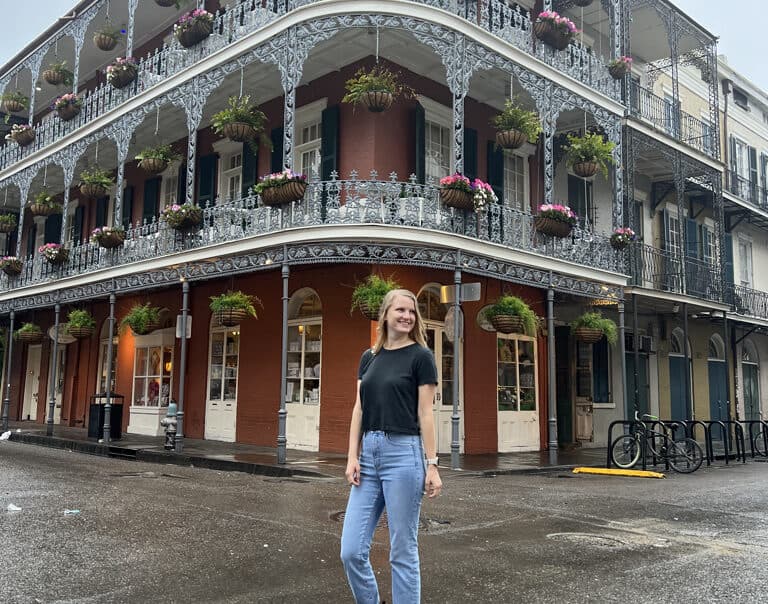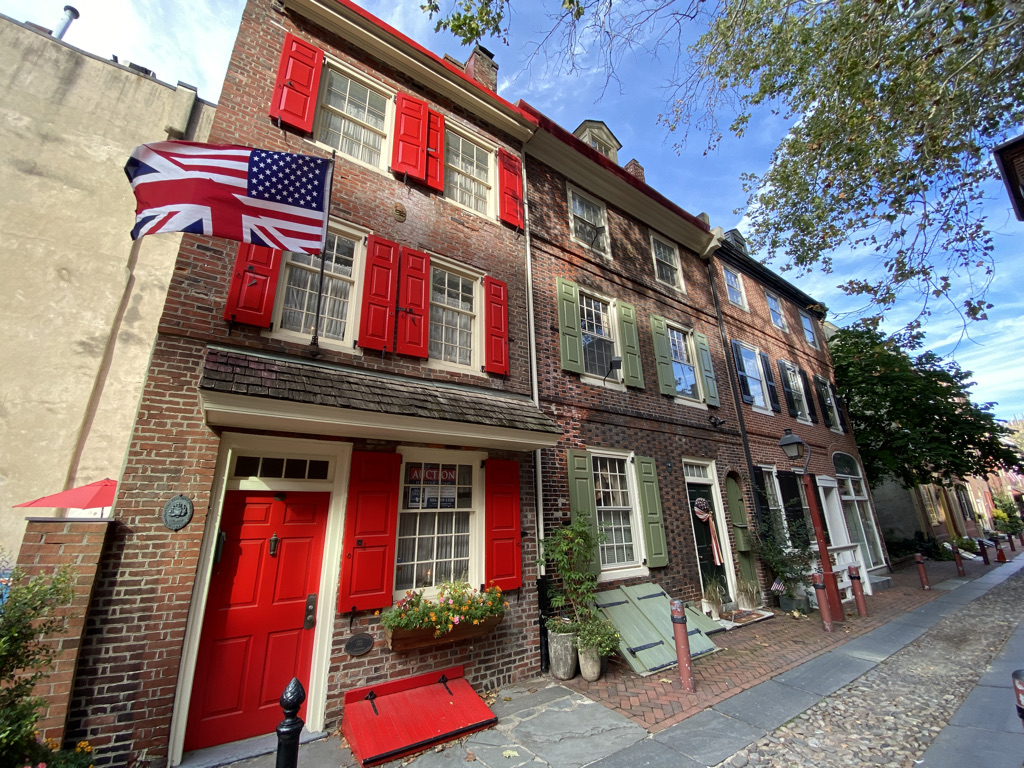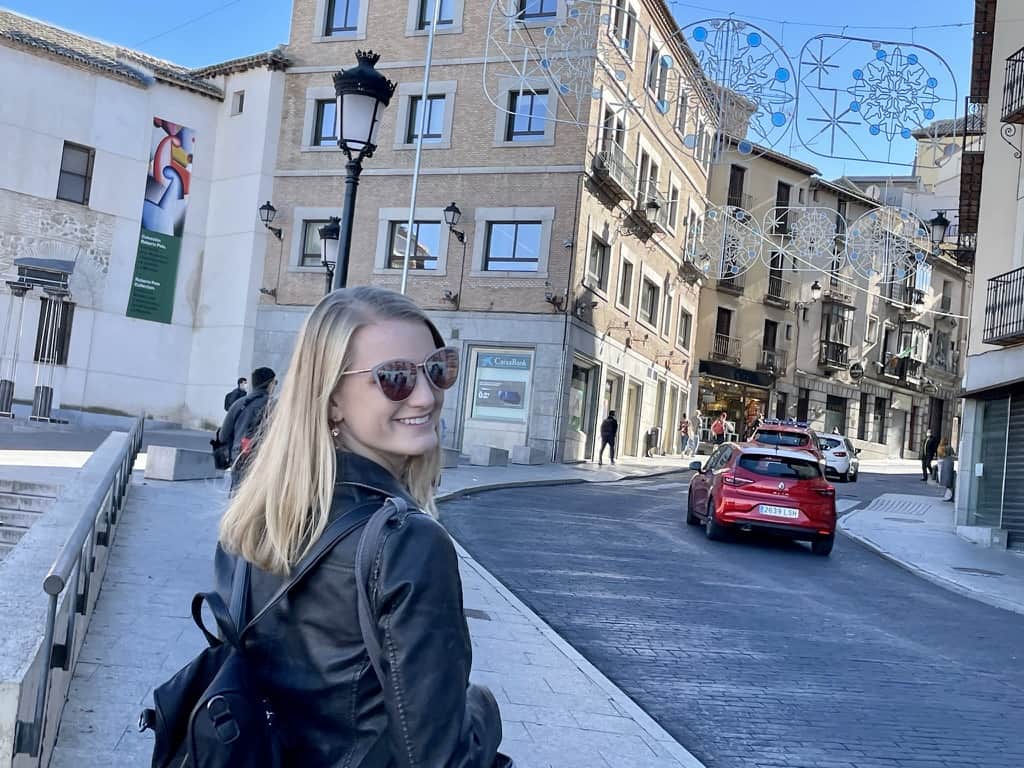
Tips for Traveling on a Budget
One of the main things that stops people from traveling, especially internationally, is money. Many people think that travel is a luxury to indulge on once in a blue moon. That’s what I thought too until a few years ago. I noticed numerous people on social media going on lots of international trips without going broke – and no, they aren’t super rich. Genuinely curious about how they’re able to pull that off, I started following more travelers on social media to learn about their lifestyles. Many of these travelers have shared their tips for traveling on a budget, and I’ve had luck saving money on travel using their tips and discovering some tips of my own. Keep reading to learn some of these tips for stretching your travel budget!
Look out for cheap flights

Usually, the most expensive part of a trip is the flights. However, since flight prices are so volatile, it’s possible to come across great deals on flights to your destination (or a destination on your radar). There are many websites, social media accounts, apps, and email subscriptions out there that help make it possible to find great flight deals – some allow you to search for cheap flights, others alert you of good deals, and some even track prices of flights you’re looking at. Here are some of my favorite resources for finding cheap flights:
Google Flights
This is my number one go-to when searching for flights to destinations. All you have to do is enter your destination and trip dates, and Google gives you flight options from various airlines and their prices. When you find the flights you like, there’s a link to go directly to the airline website and book your flight! Easy peasy. Google also provides a way to monitor the price of a flight you have your eye on, even providing the price history of that flight for the past 60 days to help you make an educated decision on whether or not the current price is a good one. When you turn on price notifications for a flight, you receive an email when the flight goes up or down in price.
Another great thing about Google Flights is the powerful tools available when searching for flights. My favorite tool is being able to search for flights in a region or continent instead of a specific destination. For example, if I know I want to go to Europe this summer, but am not sure which country would be cheapest to travel to, I can enter Europe for the destination and see what prices are for various European countries within the dates of my trip. Some other helpful search options include filtering by bag allowance, layover duration, and specific airlines.
Social Media Accounts
I’ve found many a great deal from social media accounts that post about good flight deals. For instance, I found round-trip flights to Spain for $380 from a cheap flight account on Instagram! There are accounts that post deals from any city in the US, such as Secret Flying, and others that post deals for a specific city. Since I live in Austin, Texas, I follow @escape_atx and @cheap_dfw on Instagram, which posts cheap flights going from Austin and Dallas. There may be similar accounts like that for your city – it doesn’t hurt to look for them!
Email Subscriptions
I also have subscribed to numerous free email subscriptions that send flight deals on a near-daily basis. The nice thing about some of these services is that when you sign up, you’re given the option to specify which city you live in or near to. That way you only receive flight deals for the airport(s) closest to you – it’s a way less spammy way to learn about flight deals! Some of the services I use are Airfarewatchdog, Scott’s Cheap Flights, Dollar Flight Club, and Flyforfree.com.
Skyscanner and Hopper
Skyscanner and Hopper are the travel apps I use to help find cheap flights. Skyscanner works like Google Flights in that you can search for flights to your destination and trip dates from various airlines and compare prices. You can even search for “Everywhere” in the results to see the cheapest flights available for the specific dates or month you’re looking to travel. One thing I don’t like about Skyscanner, or price finders like Kayak, is that the search results include a lot of prices provided by third-party flight websites, which end up being a headache to book with – I won’t get into that in this post though. I personally find it annoying to shift through the third-party results to get to results provided directly by airlines, so I use Google Flights much more than Skyscanner.
Hopper is also a flight search app, but what sets them apart is the app uses flight price data from the past to predict when you should book a flight you’re looking at. For example, if I’m looking at flights to Lisbon, Portugal three months out from when I will be traveling, the app will either tell me to wait for a better deal to come up or to book the flight now before I continue to the search results. Much like Google Flights, you can turn on tracking notifications for a flight you have your eye on, and Hopper will alert you when the flight price changes. These price change alerts are accompanied with a prediction of whether or not a better price will become available. A caveat with this app though is that predictions are just that – predictions – so Hopper isn’t always accurate. If you fully rely on Hopper to book flights, you could miss out on a better price for your flights.
Earn points for booking flights and hotels
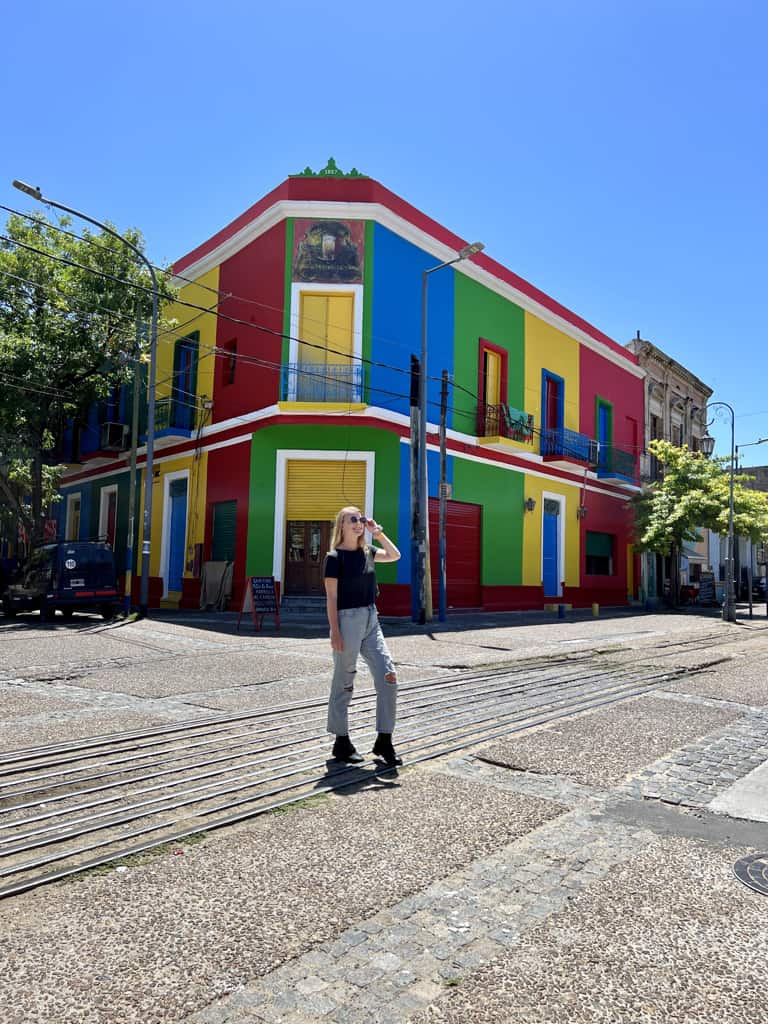
Another way I’ve been able to save major money on trips is by purchasing flights and hotels with points I’ve earned from everyday spending and flight rewards programs.
The bulk of the points I earn is from using travel credit cards. There’s many options out there, but the ones I primarily use are Capital One Venture X and Chase Sapphire Preferred. The great thing about these cards is that I earn points from everyday spending, so I’m not going out of my way to earn these points – it’s from money that I would be spending anyway. I can then redeem these points on any travel-related purchases – flights, hotels, even rideshares! I personally save points for international flights that are hard to find deals for, but it’s nice to have the option to spend them in multiple travel categories. These cards also come with other travel-related perks that can help you save money, such as rental car and trip protection insurance. There’s so many other great perks that I get from these cards, such as reimbursement for US global entry and airport lounge access, but I’ll spare you those details since the credit card websites have that info! A couple of caveats about these cards – they do have annual fees, so that’s something to keep in mind. Also, travel credit cards charge insane interest if you miss payments, so if you’re going to invest in a travel credit card, be extremely sure to never miss a payment!
Another option to earn points for travel without opening a credit card is by signing up for airline and hotel rewards programs. They’re free to join, and allow you to earn points from using the airline or hotel while traveling. Many rewards programs also allow you to earn points from their shopping and dining rewards programs. For example, since I linked one of my credit cards with the AAdvantage dining program, I have the ability to earn points from dining at any of the participating restaurants. Some airline and hotel programs even have partnerships with major travel-related companies, such as Airbnb and Uber, that allow you to earn points for using those services. Why not earn points from using apps that you would be using anyway?
Stay in hostels, Airbnbs, or hotels with great prices
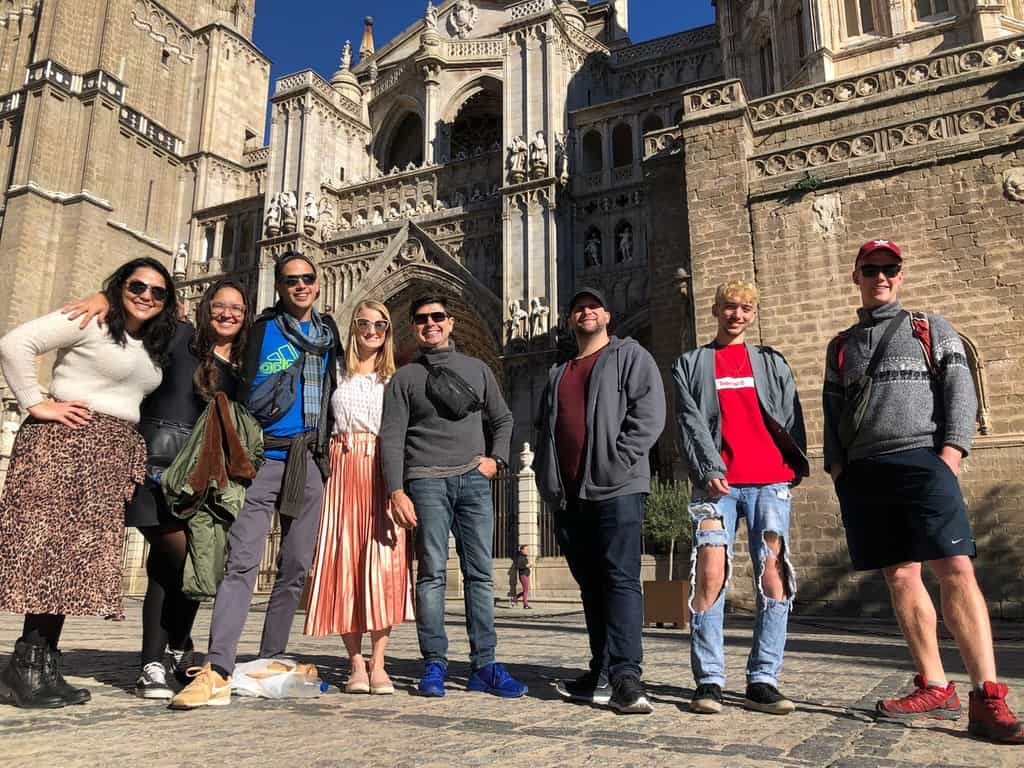
When it comes to lodging, the number one way I’ve been able to travel on a budget is by staying in hostels. I’ve been able to find beds for as little as $10 a night! The most I’ve ever spent on a hostel bed was about $45 a night in New York City. Hostels are especially great when traveling solo, as it’s a great way to meet other travelers and not be so alone in a new city. Another reason why hostels are a great way to save money is because many hostels put on free or cheap events for their guests, such as dinner nights, free walking tours, and bar crawls. I’ve saved a lot of money on food and activities by participating in hostel events! My go-to resource for finding a hostel is Hostelworld. This website, which also has an app, allows you to search for hostels in your destination for the dates you’re traveling – from there, you can read about the location, amenities, and reviews of each hostel to help you find the best option. Do keep in mind that not every hostel out there can be found on Hostelworld, but it’s a great place to start when searching for hostels.
I do recognize, however, that not everyone has the desire to stay in a hostel – or perhaps you’re traveling with a group and/or to a destination that doesn’t have good options – if any – for hostels. Not to worry, there’s still many ways to save on lodging without sacrificing the comfort of having your own space! When hostels aren’t an option for me, my next go-to is Airbnb. It’s a great way to find unique places to stay at decent prices. There’s not really a “hack” out there to save money on Airbnbs, but I’ve found that searching for Airbnbs with space restricted to your own private room or floor as opposed to having the whole house or apartment to yourself is a good way to stretch your travel budget. The nice thing about Airbnbs is that many of them nowadays have complimentary perks, such as free coffee and snacks or bikes and beach equipment available for guests to use. Not having to rent beach equipment or pay for coffee in the morning? Yes please! One final reason that Airbnbs are good for traveling on a budget is the potential of your host knowing of lesser-known restaurants or things to do in your destination that are free or affordable! I’ll talk a little bit more later about how going to local spots can help you travel on a budget.
Finally, there’s ways to save on hotel bookings. Unlike flights, hotel prices are not as volatile, and booking hotels through third-party companies is not a headache. Therefore, it’s much easier to find hotel deals than it is to find flight deals! Any hotel search website, such as Priceline, booking.com, or Kayak, are great resources for finding hotels in your destination at good prices. Additionally, Google Flights, Skyscanner, and Hopper allow you to search for hotels – so if you’re wanting to find your flights and hotels in the same place, these are great resources.
Live like a local

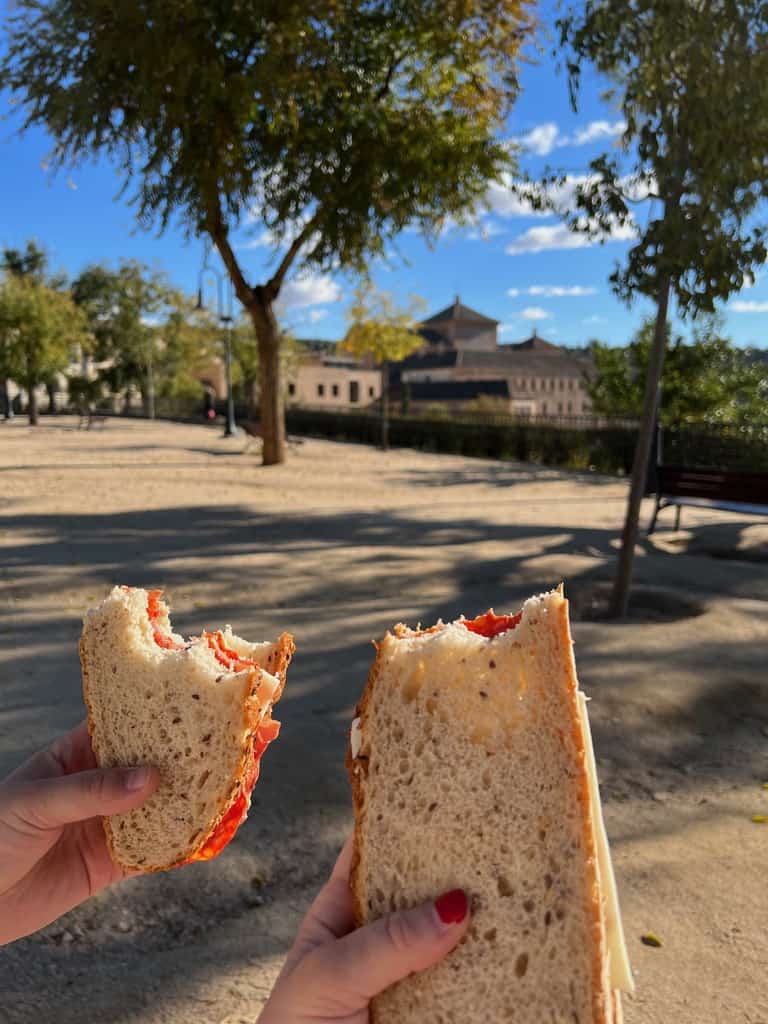
A major way to save money on travel is to seek out experiences that locals would partake in. Don’t get me wrong, I love visiting the major tourist destinations in a city, but the experiences and restaurants that attract tourists or are in major tourist areas tend to be overpriced. Therefore, seeking out things to do and places to eat that aren’t touristy is a great way to not only save money, but also truly experience the place you’re visiting. There’s many ways to find these unique experiences, but a few that have worked for me is reading blog posts from other travelers about the destination you’re going to, booking an Airbnb experience, which are experiences hosted by locals, such as food tours, and simply asking locals I befriend for suggestions (the last one is the best way!).
Another handy way to save money on food is by going grocery shopping. It’s a fun way to experience what grocery stores are like in different countries, and (to state the obvious) cheaper than eating out for every meal. Additionally, taking your leftover food home with you when you eat out is an excellent way to save on meals – you get a bonus meal for the next day! Just make sure you have access to a fridge wherever you’re staying so you can utilize storing food for future meals.
Pack light


One final tip for traveling on a budget is packing light. As an avid overpacker, this is the hardest tip for me to follow, but hear me out on this one! Many airlines charge $25-$50 for checked bags, which can very easily add up, especially if you’re going to multiple destinations on your trip. The money you save by going carry-on only is money that can be spent on a nice meal or an excursion! Some ways I manage to pack a lot in a little space is using compression packing cubes for my clothes, packing clothes that can be easily mix-and-matched with each other, and doing laundry if my trip is longer than a week – many hostels, hotels, and Airbnbs have laundry services available.
By looking in the right places for flight and hotel bookings, racking up travel points, experiencing your destination like a local would, and/or going carry-on only with your luggage, it’s definitely possible to travel longer or more frequently without financial ruin! Are there other ways that you stretch your travel budget? Drop your tips in the comments below!

